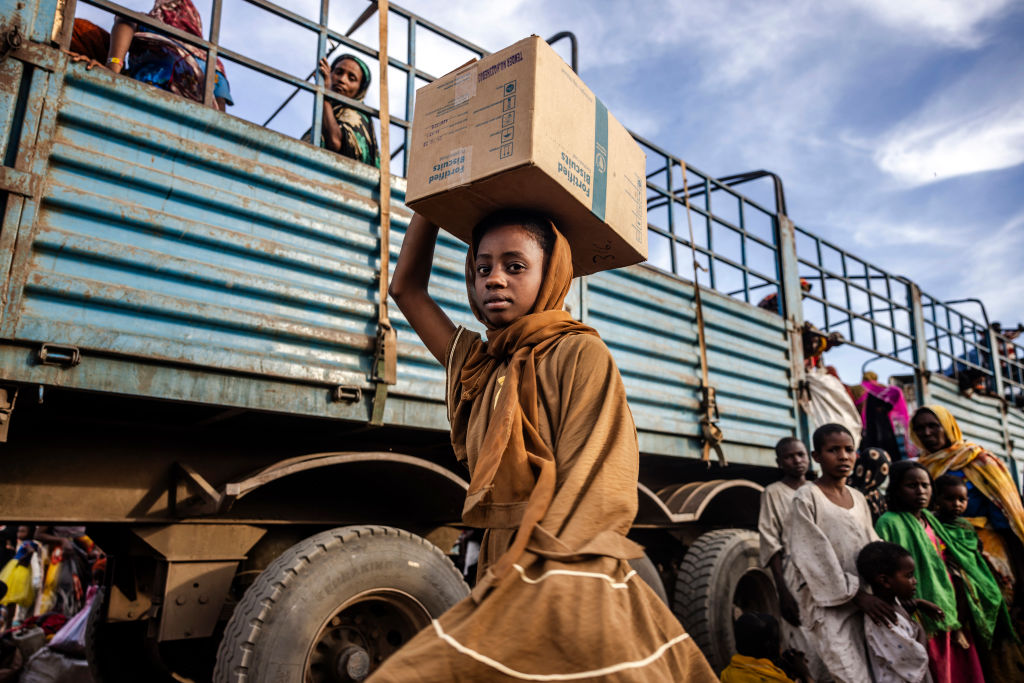ADF STAFF
Amid the violence and chaos of Sudan’s civil war, 13-year-old Hadeer, her mother and three younger siblings fled their home in Omdurman to a displacement camp in Atbara, about 320 kilometers to the northeast.
Hadeer’s aunt and uncle were killed, her cousins fled the country, and her family lost contact with her father.
With the war raging, education had become a distant concern. Hadeer never thought she would be able to study again. Using a pseudonym for her safety, Hadeer told Save the Children, an international charity that built a school in her camp, how she dreamed of being an architect when she grew up.
“At home we had facilities and electricity, and I could walk [to school] and study safely,” she said. “But here I feel scared when I walk in the streets, not like there [home].”
After more than a year of fighting between the paramilitary Rapid Support Forces militia and the Sudanese Armed Forces, about 25 million people, or half of the country’s population, require humanitarian aid, according to the United Nations.
In April 2024, the U.N. estimated that 4 million children had been forced from their homes since fighting began in April 2023, including nearly 1 million children crossing into neighboring Chad, Egypt and South Sudan, among others.
Sudan has among the worst education crises in the world, as the majority of schools are closed and more than 90% of its 19 million school-age children have had no access to formal education for more than a year.
UNICEF Deputy Executive Director Ted Chaiban called it a “generational catastrophe.”
“The scale of needs is so staggering that it’s hard to put into perspective,” he said in an April 14 statement. “These numbers represent millions of children with names, stories, hopes and dreams.
“Yet without significant scale up of critical life-saving services, a reopening of schools, and most fundamentally an end to the war, these hopes and dreams will be lost for a generation and for the future of Sudan.”
Violent attacks on schools in Sudan have increased fourfold since the conflict began, as Save the Children reported 88 violent incidents in an analysis published on May 28. Among them were airstrikes on schools that resulted in deaths and injuries to students and teachers, torturing of teachers, killing and abduction of teachers, and sexual violence against students inside education facilities.
Other reported incidents included occupation of schools by armed groups, use of schools as weapons storage facilities, and battles fought on school grounds.
“It’s not just children’s lives that are on the line, but also their futures,” Save the Children Sudan Director Dr. Arif Noor said in a statement. “Millions of children continue to face disruptions to their education with their schools destroyed by bombs, taken over as shelters for displaced families, or learning stopped as children flee.”
Sudanese refugee Fatima Abdallah Abusikin Idriss, 19, studied at the International University of Africain Khartoum in the faculty of languages and Islamic studies, Arabic department, before fleeing to a transit center for refugees in Renk, South Sudan.
In a May 21 video interview with the U.N. High Commissioner for Refugees, she asked to deliver a message to the warring parties.
“Stop the war as soon as possible, because lives are being destroyed,” she said. “People are not going to school, some have died and others have been displaced. Families have been torn apart.”

